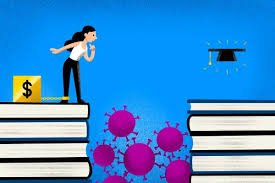When student loan payments resume, many borrowers wonder whether bankruptcy offers relief. Under current standards, the law permits the discharge of some student loan debt if certain requirements are satisfied. At the same time, bankruptcy serves to alleviate other kinds of obligations that do not qualify for discharge. This article explains which student loans may be discharged now and how bankruptcy may help you handle other debts. If you are in Clearwater and seeking advice, a Clearwater bankruptcy attorney can guide you through this complex area.
What the Law Says About Discharging Student Loans
Student loans are generally non-dischargeable in bankruptcy. That means that, under most circumstances, you cannot simply erase them by filing under Chapter 7 or Chapter 13. However, federal law and recent court practice provide a path when repaying the loan creates an “undue hardship.” You must start an adversary proceeding in your bankruptcy case to pursue discharge of student loans. The adversary proceeding is similar to a lawsuit within the bankruptcy case, where you ask the court to determine that continuing to repay the loan would be a hardship beyond what the law permits.
Federal student loans are usually the subject of discharge requests under this standard. However, private loans may also qualify if they fail to meet certain criteria or if loan terms are unfair or improperly structured.
The “Undue Hardship” Standard and What It Requires
To succeed in an adversary proceeding, you will need to show several things. Commonly, courts apply a test derived from Brunner v. New York Higher Education Services Corporation. Under that test, you must show that you cannot maintain a minimal standard of living while repaying the loans, that your financial condition is likely to continue for a significant portion of the repayment period, and that you have made a good-faith effort to repay the student loans.
You will need to provide documentation of your income, expenses, assets, job prospects, and past repayment efforts. The more precise your records, the better your chance to persuade the court. Courts often require detailed evidence, not mere assertions.
Newer Developments Under Florida Law
Recently, Florida bankruptcy courts have streamlined the handling of student loans. One initiative is the Student Loan Program in the Southern District of Florida. That program provides local forms and steps to help Chapter 13 debtors look into practical repayment options with student loan lenders, supervised by the U.S. Trustee.
Case law in Florida has also recognized that some private student loans might be treated as consumer loans or “unqualified education loans” if they exceed the cost of attendance, are tied to an ineligible institution, or if the terms run counter to law. If a loan is found to be “unqualified,” it may be discharged more easily than loans that strictly comply with federal student loan rules.
How Bankruptcy Helps with Other Debts
Even if your student loans cannot be discharged, bankruptcy still offers relief in other areas. Unsecured debts, such as credit card balances, medical bills, unpaid utilities, and personal loans, are often dischargeable. These debts may be wiped out under Chapter 7 or significantly reduced under Chapter 13. The result is reduced monthly obligations, freeing up resources to manage student loan payments.
Bankruptcy also triggers an automatic stay. That stay halts collection activity, wage garnishment, lawsuits, and creditor calls. In the period while the bankruptcy case is pending, you gain breathing room to assess your financial position.
When It Makes Sense to Seek Discharge
Consider asking for discharge of student loans when your income is low, job prospects are weak, or fixed obligations dominate your expenses. If your student loan payments are overwhelming, and other dischargeable debts leave little leftover, an adversary proceeding may succeed. Florida attorneys have reported recent victories or settlements in these cases, particularly when it appears that private loans have problems under current law.
You should weigh legal costs, time, and court risk. Even a partial discharge or negotiated settlement may reduce interest, principal, or payment burdens. Sometimes relief comes more from eliminating other debts than from discharging student loans.
Student loans after the payment restart remain generally non-dischargeable, but current law provides a path under the undue hardship standard for both federal and, in some cases, private loans. Bankruptcy may not erase student loan debt easily, yet filing under Chapter 7 or Chapter 13 often allows discharge of other unsecured debt and stops creditor actions temporarily. If you are in Clearwater and considering options in this area, contact a qualified bankruptcy attorney at Weller Legal Group, where the team is familiar with current Florida practice and can assess whether an adversary proceeding or other relief is suitable for your situation.
 Online Clock
Online Clock